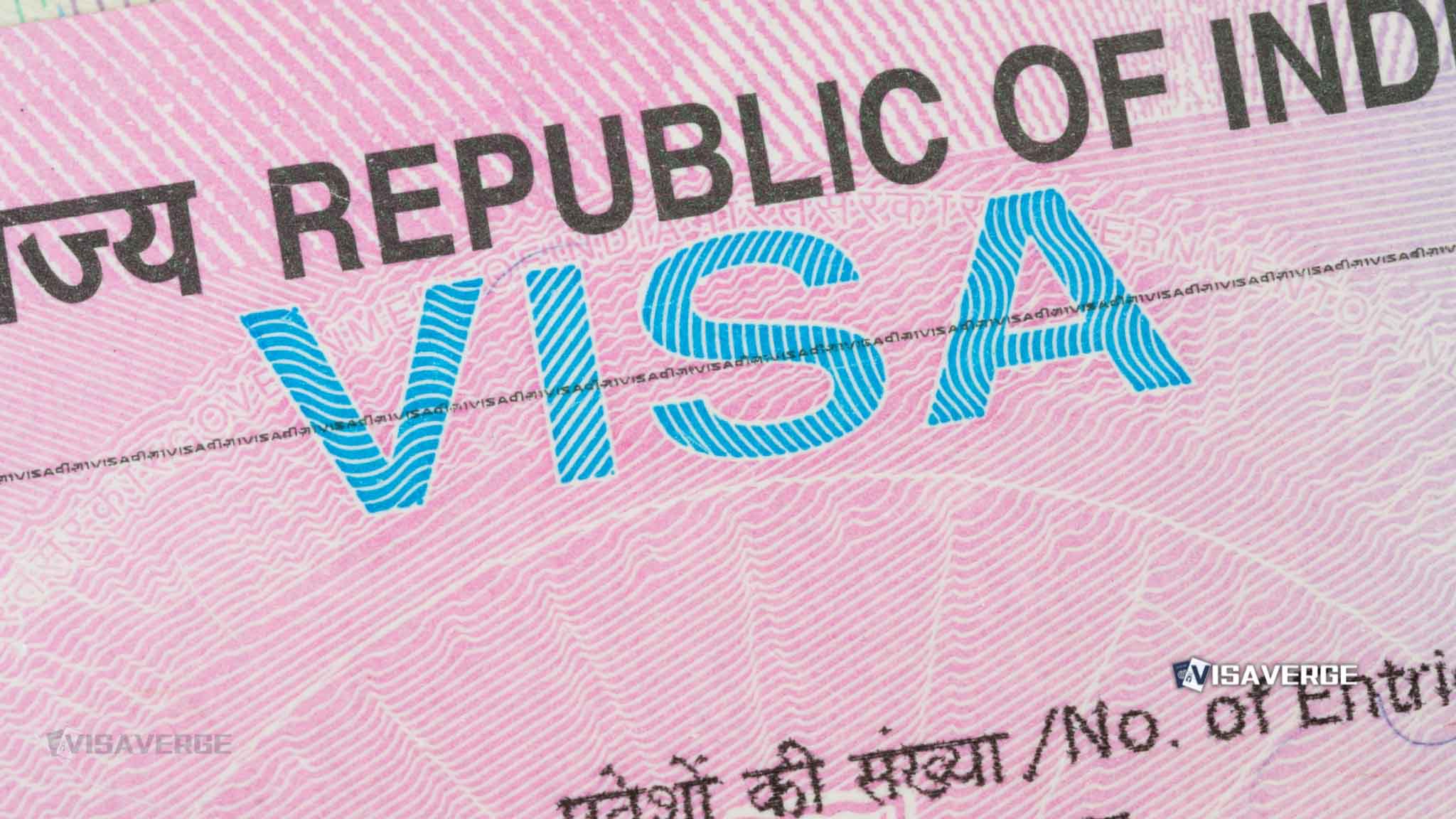(UNITED STATES) Employers planning to file new H‑1B cap‑subject petitions face a hard stop during any government shutdown because the U.S. Department of Labor (DOL) halts Labor Condition Application (LCA) processing. Without certified LCAs — which are required for H‑1B, H‑1B1, and E‑3 filings — companies cannot submit complete H‑1B packages to U.S. Citizenship and Immigration Services (USCIS). USCIS is largely fee‑funded and remains open, but it cannot lawfully accept or approve a petition that lacks a certified LCA. This chokepoint has been the defining feature of past shutdowns, and it would be the key constraint again.
USCIS’s annual H‑1B lottery registration window normally falls in March. If a government shutdown overlaps that period, the online registration step could still go forward because it sits on USCIS systems, not Department of Labor systems. USCIS has said in earlier stoppages that it can support core intake and selection functions even when other agencies pause. Still, outages or delays are always possible during a crisis.

The bigger risk arises after registration, when selected registrants must file full petitions and hit tight deadlines but cannot secure LCAs while DOL is closed. In previous shutdowns, USCIS did not accept H‑1B filings without certified LCAs. However, once the government reopened, the agency allowed late filings when the only reason for the delay was the shutdown. Employers should expect a similar stance if another shutdown occurs — but remember that late filing forgiveness is not a cure‑all. It does not remove stress on start dates, compliance calendars, or projects that depend on talent beginning work on time.
According to analysis by VisaVerge.com, the registration stage may give employers a false sense of normalcy during a shutdown. The trap appears weeks later when petition filing windows open but LCAs remain stuck. Companies that plan ahead with draft job descriptions, wage levels, and compliance files will be better placed to move fast once the DOL resumes LCA certification.
What continues and what stops during a shutdown
USCIS remains open for business during a shutdown because user fees fund most of its operations. That means the agency can:
- Accept H‑1B lottery registrations (typically in March).
- Continue adjudications for many case types, including premium processing.
- Maintain most customer service functions.
However, USCIS cannot process H‑1B cap‑subject petitions that require certified LCAs if employers are unable to include those documents in their filings. In practical terms, the “bottleneck” sits outside USCIS and stalls the H‑1B pipeline at the starting line.
The Department of Labor, by contrast, suspends non‑essential operations. That includes the Foreign Labor Application Gateway (FLAG) that handles LCA submissions for H‑1B, H‑1B1, and E‑3. During a shutdown:
- Employers cannot file LCAs through FLAG.
- Employers cannot receive certified LCAs through FLAG.
- Without a certified LCA, a petition package is incomplete and cannot be accepted at intake.
The LCA form is ETA 9035/9035E, filed through the FLAG system; when the system is offline, there is no alternative channel.
For official program pages, USCIS maintains an H‑1B cap season hub that explains the March registration, the lottery selection process, and filing steps after selection. The portal posts date announcements and technical notices if issues arise. See the USCIS H‑1B cap season page for timing and process details: USCIS H‑1B Cap Season.
Even when USCIS systems are live, real‑world pressures mount for employers. Hiring plans, client projects, and team budgets all line up around the H‑1B calendar. When DOL is down and LCAs cannot be certified, those plans sit in limbo. International students on F‑1 Optional Practical Training (OPT) who hope to “bridge” to H‑1B on October 1 may face anxiety about work authorization timelines. U.S. workers also feel ripple effects when key roles remain unfilled due to delayed filings.
If the shutdown falls exactly in March, registration may proceed on schedule, but selected registrants still need certified LCAs for the subsequent filing window. If DOL remains closed into that window, employers would be unable to file on time. Historically, once the government reopens, USCIS has accepted late H‑1B filings if the delay was caused by the shutdown. Employers should keep evidence of LCA attempts and system unavailability to support any late‑filing request.
Practical steps and timeline risks for employers
While FLAG is down, companies can still prepare the pieces they control. That preparation will enable faster filing as soon as the system returns.
Actions employers can take now:
- Draft and finalize LCA content:
- Job titles and SOC codes
- Wage levels and prevailing wage documentation
- All worksites and associated addresses
- Prepare compliance materials:
- Public access file
- LCA notice postings at worksites
- Non‑displacement and internal notice records
- Assemble petition materials:
- Draft the Form I‑129 packet (including H‑1B Data Collection Supplement)
- Prepare supporting evidence so the packet can be filed quickly once the LCA is certified
Key planning points:
- H‑1B registration likely continues: The March online registration may proceed even during a shutdown, though technical issues are possible.
- LCA processing stops at DOL: The Department of Labor does not process LCAs during a shutdown, effectively halting the H‑1B petition pipeline.
- Petitions require certified LCAs: Without a certified LCA, USCIS will not accept H‑1B petitions.
- USCIS operations mostly continue: Fee‑funded services proceed, but H‑1B intake still depends on a certified LCA, which is outside USCIS control.
Employers should prepare to file the LCA the moment FLAG reopens. DOL’s H‑1B program page explains the LCA function and electronic filing platform: FLAG H‑1B Program (LCA). After obtaining LCA certification, employers complete and file Form I‑129 with USCIS, including the H‑1B Data Collection Supplement. Form details are at USCIS: Form I‑129, Petition for a Nonimmigrant Worker.
Timing squeezes after reopening
- FLAG may face large backlogs as thousands of employers rush to submit LCAs.
- DOL processing lags could shorten the USCIS filing window for selected registrations.
- Even if USCIS announces grace for late filings tied to the shutdown, employers should act quickly; late acceptance does not guarantee uniform outcomes. Agency notices may set clear cut‑offs.
Special considerations: students, small employers, fees, and consular processing
F‑1 students on OPT or STEM OPT face potential disruptions to the cap‑gap (the extension that allows certain F‑1 students to keep working until an H‑1B start date). If employers cannot timely file due to a shutdown, students might lose this protection. Students and school officials should stay in close contact with employers so filing can occur immediately once systems reopen.
Smaller employers and nonprofits may feel the burden most, since they often lack budget flexibility for repeated legal reviews or extended start‑date delays.
Notable fee development (important as of September 21, 2025):
- A new $100,000 fee reportedly applies to certain H‑1B petitions as part of broader reform efforts. This fee, layered on top of a shutdown, could strain hiring plans and push organizations to delay or cancel sponsorships.
- Employers should review budgets and seek legal guidance on how the new fee may affect their cases.
Workers abroad (e.g., in Canada or India) also face challenges:
- Even if USCIS can approve petitions once LCAs are certified, visa applicants still need consular appointments.
- A shutdown adds uncertainty for travel, onboarding, and client delivery.
- Clear communication with candidates is vital: explain the delay stems from the DOL’s LCA pause, not employer or worker inaction.
Protective steps employers can take now
- Build alternate staffing plans for critical projects if filings slip.
- Prepare all LCA content and public access files, ready to submit once FLAG returns online.
- Draft the Form I‑129 packet so the petition can go out within hours of LCA certification.
- Track USCIS announcements for any late‑filing allowances tied to the shutdown.
- Keep timestamped records of attempted LCA submissions and screenshots of system downtime.
- Review H‑1B1 and E‑3 strategies (they also require LCAs) and consider lawful alternative visa categories if hiring is urgent.
- Seek legal counsel before shifting strategies to avoid status or compliance mistakes.
Because shutdown schedules can change with fast‑moving negotiations in Congress, plan against multiple scenarios and build internal deadlines that can move if the government reopens earlier or later than expected.
The bottom line remains simple and strict: No certified LCA, no H‑1B petition filing. The government shutdown does not stop USCIS from running the lottery or receiving mail, but it blocks the crucial LCA gate that every H‑1B cap‑subject petition must pass. Companies that plan ahead, communicate with candidates, and act quickly when systems return will be best placed to file strong cases on time.
Frequently Asked Questions
This Article in a Nutshell
A federal government shutdown halts the Department of Labor’s processing of Labor Condition Applications (LCAs) through the FLAG system, preventing employers from obtaining the certified ETA 9035/9035E forms required to file H‑1B, H‑1B1, and E‑3 cap‑subject petitions with USCIS. Although USCIS — largely fee‑funded — can often continue the March online H‑1B lottery and many adjudications, it cannot lawfully accept petitions lacking a certified LCA. Employers should prepare job descriptions, wage documentation, public access files, and draft Form I‑129 packets in advance so they can file immediately when FLAG reopens. Historical practice shows USCIS may accept late filings caused by shutdowns, but late acceptance does not eliminate scheduling, compliance, or start‑date pressures. Employers should maintain timestamped evidence of attempted LCA submissions and consult immigration counsel, while students on OPT should coordinate closely with employers to mitigate cap‑gap risks.







